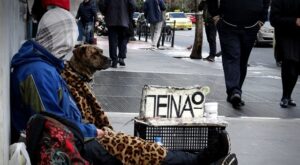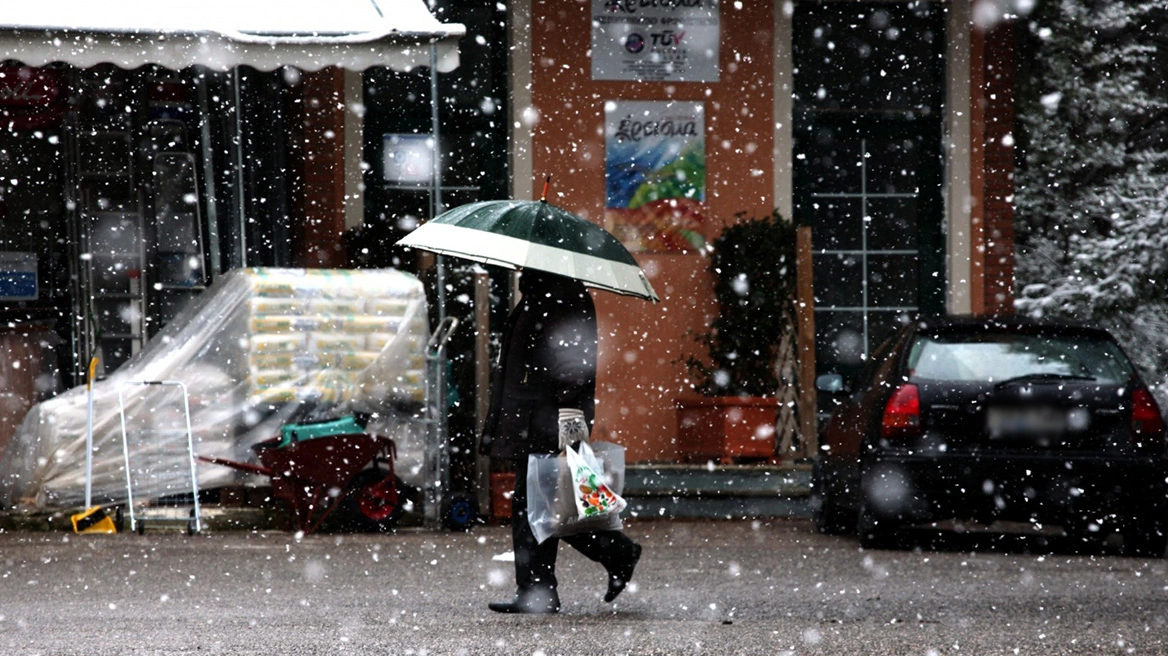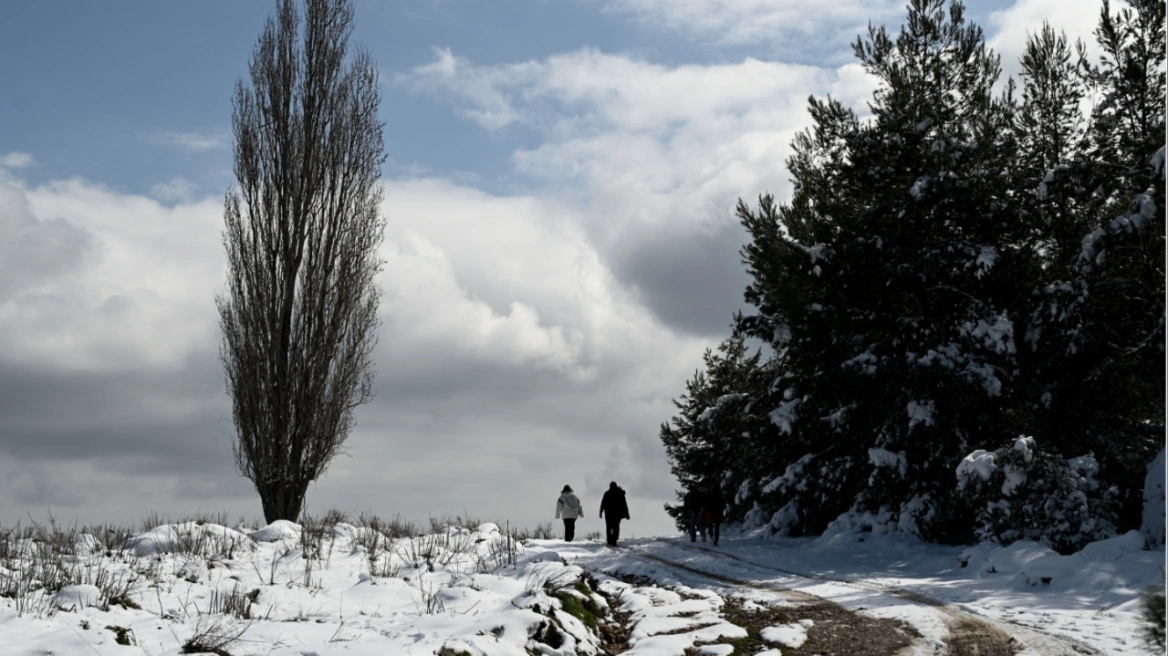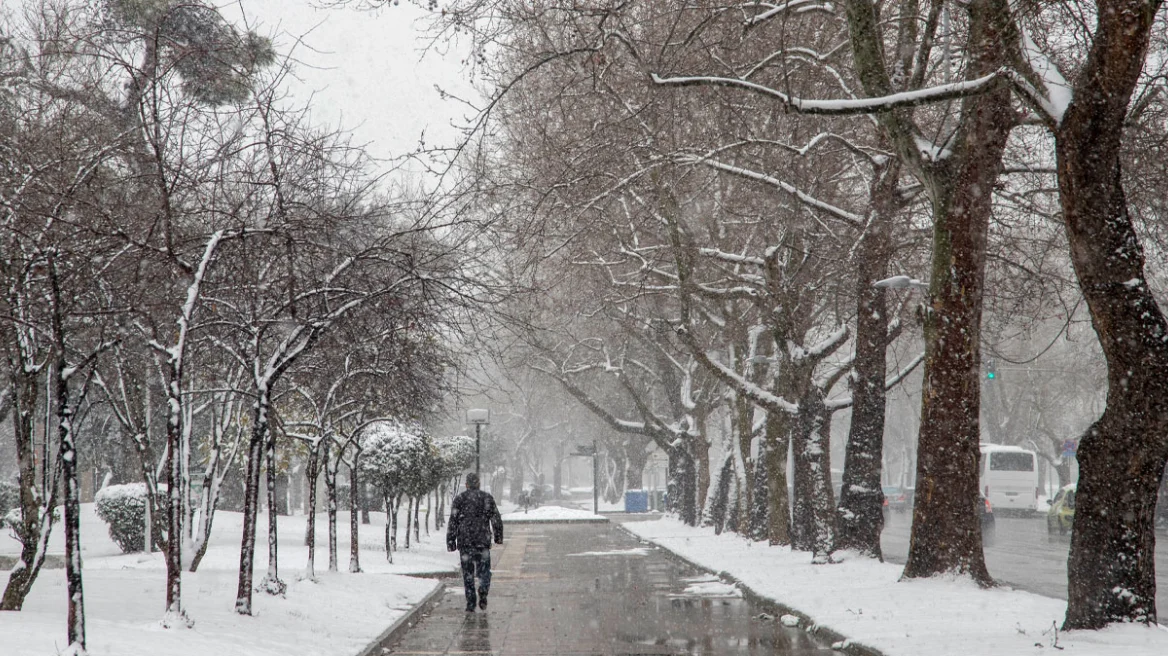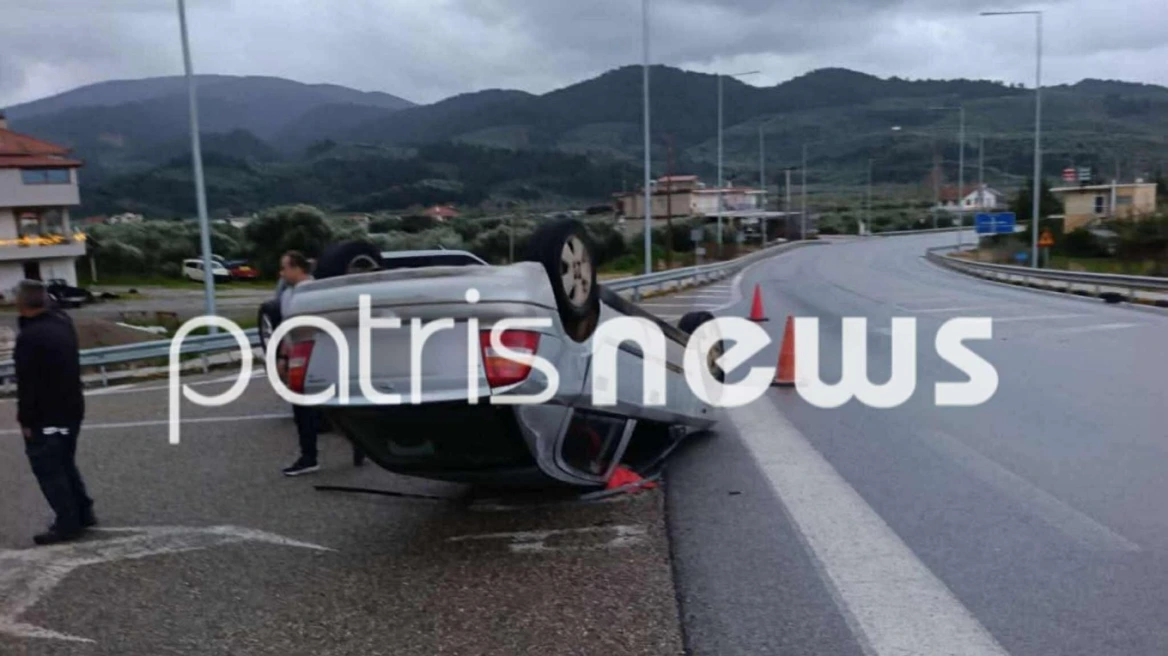Holding small dogs in their arms or dressed in minimal clothing with bare feet, shivering from the cold, victims of trafficking and exploitation networks beg on the main streets of Greece’s major cities. These individuals mainly come from Romania and Bulgaria. In fact, the network members have geographically “divided” the country, with Romanians primarily active in Athens and Bulgarians in Thessaloniki.
The image of begging, which intensifies as the holidays approach, is described by the streetwork team of ARSIS, which identifies and supports potential victims of trafficking who arrive in Greece from Bulgaria and Romania. “The difference between Thessaloniki and Athens is that in the former, there are more Bulgarians involved in begging—due to geographical proximity—while more Romanians beg in Athens, a trend that has remained steady over the years,” says Nikos Kotoulas, a member of the streetwork team, in an interview with the Athens/Macedonian News Agency.
Animals in the service of begging networks and people trembling from the cold
One of the new methods used by these networks to elicit the compassion of passersby involves… dogs. “We’ve noticed that they use animals, mainly small-breed dogs, to appeal to passersby. The animals, in fact, all come with certificates,” Kotoulas explains.
However, lawyer and coordinator of the Special Action for Victims of Human Trafficking Services in Southeastern Balkans, Chrysovalantis-Konstantinos Papathanasiou, notes that animals are preferred to evoke public sympathy because, when a potential trafficking victim is accompanied by a minor (who may not even be their child), an additional offense of child exploitation arises. “At the same time, we remain skeptical about the validity of the certificates presented for the animals, as we do not have the jurisdiction to verify their authenticity,” he adds.
The team has observed that there are fewer minors involved in begging in Thessaloniki, a fact attributed to greater public awareness of the issue and better social reflexes compared to Athens. “Of course, this is also significantly influenced by the fact that begging in Thessaloniki is easily identified—for example, on Tsimiski Street—while in Athens, due to its size, it also occurs in areas outside the city center,” Papathanasiou explains. “Beyond the exploitation of minors and animals,” he continues, “we have recently observed—especially in Athens—the exploitation of people with mobility issues, as well as cases where individuals falsely present themselves as disabled.”
In Thessaloniki, the streetwork team has noticed more Bulgarian men begging, while in Athens, the majority are Romanian women accompanied by minors. “In Thessaloniki’s city center, we see Bulgarians covered with a small sheet, barefoot, trembling from the cold. However, we have seen them, after leaving their begging spots, go to a location where they put on clothes, socks, and shoes, only to undress again when returning to the spot to beg,” Kotoulas notes, clarifying that most live in homelessness—either on the street, in unsuitable abandoned buildings, or as temporary guests elsewhere. He also describes the common characteristics of those who beg and are victims of networks, as they present themselves in a more calculated manner.
“In general, outdoors, you can notice that people begging share some common characteristics, such as having dogs or holding signs with specific wording like ‘I’m hungry,’ written in a particular font. These indicators lead us to suspect that it’s part of an organized network,” Kotoulas adds.
Do not give money
Members of ARSIS’s Action reiterate a point emphasized by all those involved in the issue: citizens should not give money to people who beg, as this sustains the phenomenon. Instead of money, they advise those who wish to help to offer water and food, or during cold weather, warm clothes and blankets—anything that can provide relief.
“There are people who seem to beg out of necessity, and others where the signs of victimization and exploitation are more intense and evident. Citizens who encounter begging, if they are sensitive and observant, can report incidents to the authorities or ARSIS, even anonymously,” Papathanasiou concludes.
It should be noted that ARSIS, in collaboration with the National Center for Social Solidarity (EKKA), implements a Special Action titled “Coordination Services for Victims of Human Trafficking in Southeastern Balkans,” in cooperation with Bulgarian authorities and agencies. The aim of the Action is to contribute to the development of best practices between Greek authorities and the countries from which the victims originate (Bulgaria and Romania), as well as to strengthen cross-border mechanisms for identifying and supporting victims. The Action is part of the “Greece – Internal Security Fund 2021-2027” under the Special Objective “Prevention and Combating Crime” and is co-funded by the European Union.
Ask me anything
Explore related questions
